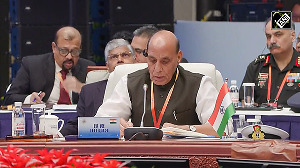The commerce and industry ministry has proposed delegating powers of the Foreign Investment Promotion Board in special economic zones to a special board and has sought an extension of the tax holiday for units in these zones to 20 years.
The draft special economic zones Bill, circulated to ministries for their comments, has proposed that units get a corporate tax write-off in the first five years, a 50 per cent exemption in the next five and a waiver for another 10 years if they plough back profits.
Now, units in special economic zones get a tax write-off for five years followed by a 50 per cent exemption for two years, which can be extended by another three years.
The ministry had also proposed amendments to the Banking Regulation Act to waive statutory liquidity requirements for offshore banking units in these zones, officials told Business Standard.
The draft Bill plans to allow 161 services covered under the General Agreement on Trade in Services in these zones and includes the concept of free trade zones for setting up warehouses and for trading. Imports to such zones will be allowed duty free and inland sales from these zones will be subject to payment of a nominal duty.
Powers to set and collect user charges will be given to developers of the special economic zones.
The delegation of investment approval to a special board, an inter-ministerial body headed by an additional secretary in the commerce department, is being proposed to make special economic zones more attractive. The board will also deal with industrial licensing.
To ensure a better investment climate, the draft also stipulates that no cancellations will be permitted once a letter of approval for a special economic zone has been issued.
In the event of bankruptcy, the draft Bill contains a provision for the appointment of a receiver until alternate arrangements are made.
While the draft states that a special economic zone should have an area of 1,000 hectares, there is flexibility for sector-specific zones. The limit will also be relaxed for special economic zones in the hills.
The draft Bill has dropped plans to allow virtual special economic zones. The concept was dropped after facing opposition from the finance ministry.
Officials said it was also felt that introducing the concept at this stage could jeopardise the development of existing special economic zones.





